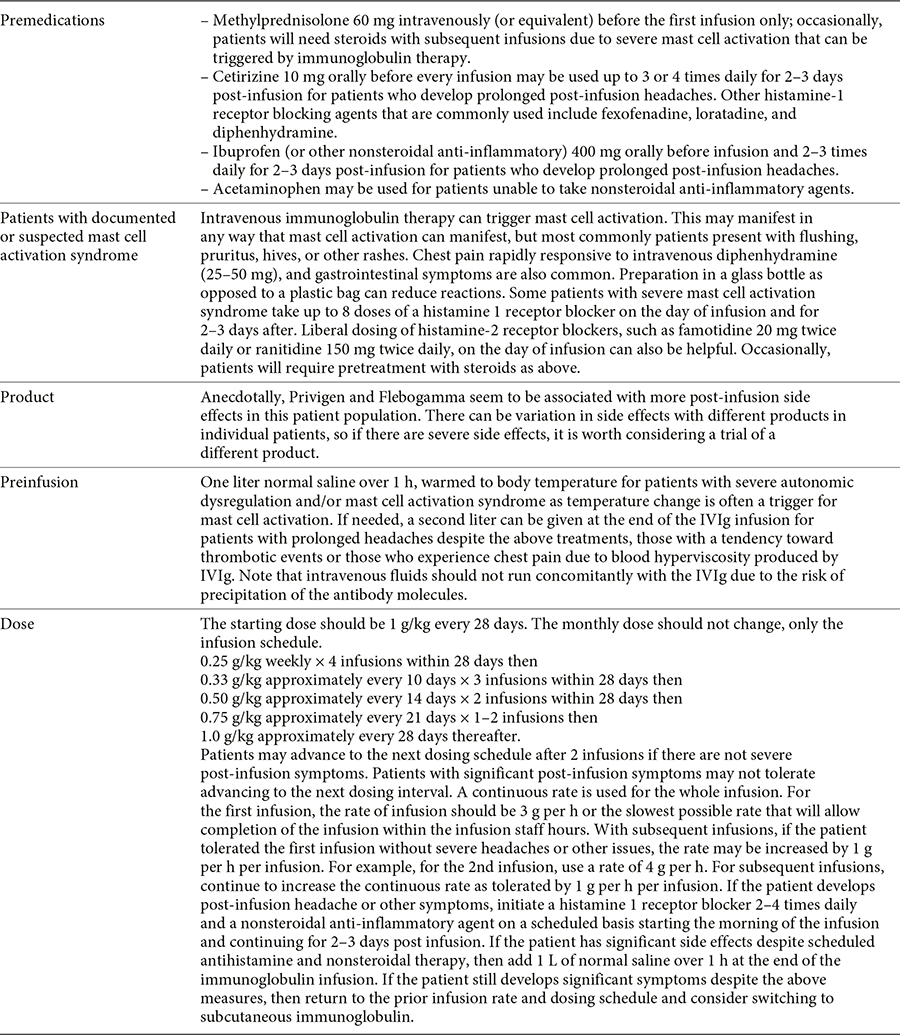Intravenous Immunoglobulin
as a Potential Treatment for Autoimmune Dysautonomia
Intravenous immunoglobulin therapy (IVIg) is FDA approved for immune-mediated peripheral nerve disorders including Guillain-Barre syndrome, chronic inflammatory demyelinating polyneuropathy, and multifocal motor neuropathy. While not yet FDA approved, immunoglobulin therapy can be beneficial for patients with disabling autoimmune forms of dysautonomia, including small fiber polyneuropathy. IVIG showed improvement in approximately 80% of people with small fiber polyneuropathy. Caution is warranted, however, as patients with autonomic dysfunction develop aseptic meningitis or severe lingering headache when used in traditional fashion (1-2 g/kg given over 2-5 days).
Small fiber polyneuropathy may be co-morbid with:
|
|
In addition, dysautonomia may occur in association with
- Primary antineuronal autoimmunity: antibodies to adrenergic and muscarinic receptors, ganglionic acetylcholine receptor, NMDA receptor and others
- Systemic autoimmune disease and autonomic neuropathy including Sjogren syndrome and antiphospholipid syndrome
- Many other autoimmune diseases, including:
|
|
Sample IVIg Protocol for Suspected Autoimmune Related Dysautonomia
Taken from Schofield and Chemali. 2018. "How we treat autoimmune small fiber polyneuropathy with immunoglobulin therapy." European Neurology 80: 304-310.

Dr. Schofield gave an excellent presentation on IVIG Therapy in Refractory Dysautonomia in 2017 with more detail than presented here.